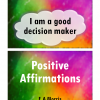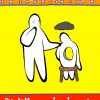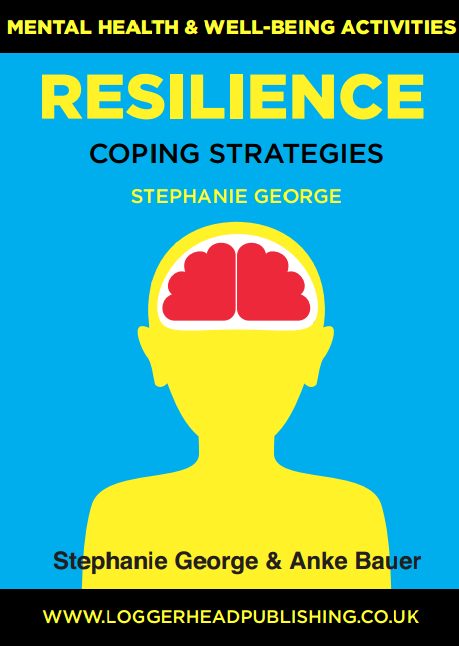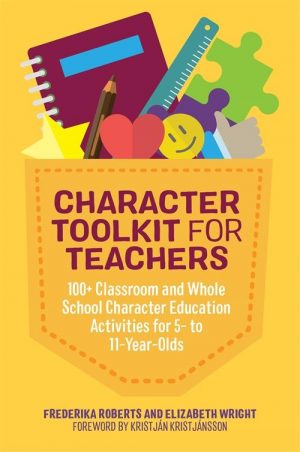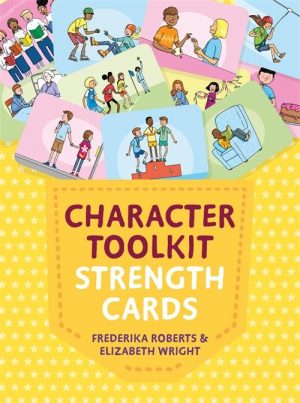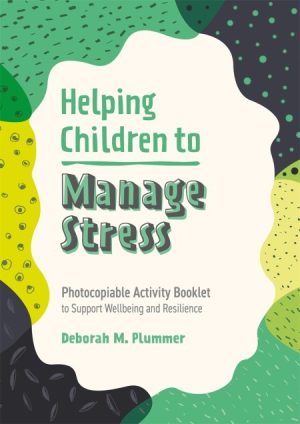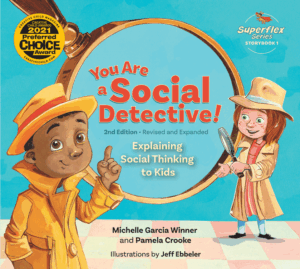Mental Health & Well-Being Activities: Resilience Coping Strategies
£37.99
Activities focusing on resilience in young people
By Stephanie George & Anke Bauer
Staff working in schools face a multitude of issues in addition to teaching and learning; some of these issues include social, emotional and mental health issues. Mental health issues are a social and public concern and the government has a made a commitment to mental health services and provision in schools.
Moves are afoot to ensure that every primary and secondary school in England and Wales has staff trained in mental health first aid and are given a single point of contact with local mental health services. Children and young people will be taught more about mental health, including keeping safe online and cyber-bullying.
This book on resilience coping strategies is the first in a Mental Health & Well-Being Series providing practical activities to help practitioners when working with children and young people in schools.
Within this book are 20 resilience-focused activities that cross the bridge between the pastoral and curriculum aspects of learning including:
- Early help assessment tools
- Action plans
- Assessment matrices
- Social learning themes to help contextualise student experiences
- Signposting tools
- Mental Health – What is it?
- Building Resilience – Initial Self-Assessment
- Building Resilience Action Plan
- Resilient, Really? Me?
- Giving Gifts
- Help! My Community of Helpers
- Train your Resilience Muscle
- My Place of Strength
- Do Something for Your Community
- The Resilience Choice Card Game
- What is This Feeling?
- Ways of Coping with Different Situations
Intended for use by professionals working in a variety of settings including schools, alternative education settings, Learning Support Units, Pupil/Student Referral Units, Isolation Units, Exclusion Rooms, youth clubs, community groups and similar settings, these activities are suitable for students aged 10 to 18.
The activities can be led by teachers, learning mentors, behaviour mentors, pastoral team leaders and assistants, exclusion room staff, HLTAs, special educational needs staff, family support workers and members of welfare teams. The downloadable resources contain the complete contents of the book to allow easy printing of the instructions for running the activities and their accompanying worksheets or they can be photocopied. Includes a Student Feedback and Tracking Workbook to print out or photocopy.
“Although it has been two decades since Peter Greenhalgh’s seminal Emotional Growth and Learning, the link between emotional wellness and learning still remains undervalued and misunderstood. However, this book makes an outstanding practical first contribution to an innovative new series on the topic. Written by two effective and experienced practitioners/researchers, it is designed to be used in a range of pupil contexts giving students ownership of their emotional development. The activities are varied, accessible and astute; they foster not only self-assessment but also the more diffcult modification or unlearning of unhelpful instinctive emotional responses. This is the process that unlocks barriers to successful learning development and a healthy life. Particularly useful are the activities tracking progress and re-evaluation. I also liked the workbook to record progress that was given at the end. This book deserves to be widely read by curriculum and pastoral leaders alike, and particularly to be even more widely implemented in schools.”
Irene Papadopoulos MA, Chair of Governors, Plashet School
Stephanie George, MA is a Deputy Head teacher in London. She has been responsible for the training of over 1500 pastoral staff for the past 20 years through her work as a national trainer for Osiris Educational. She has written 10 books on Learning Mentor policy and practice in the United Kingdom since 2010, as well as two Talking Boxes (2015) of discussion cards on attendance/punctuality and moral dilemmas. Stephanie also developed the first baseline assessment model to measure the impact of mentoring for individual students.
In 2013 Stephanie was recognised by the Times Educational Supplement for her outstanding work in leading mentoring teams and received a TES Award for 2013. In 2015 she received a Pearson Teaching Award.
Anke Bauer, BA is a social worker in a secondary school in southern Germany. In the past she worked as a learning mentor in secondary schools in London. With her background in European Social Work, Ecology and Ceramics she is mainly working in whole class settings using elements of experiential education.
Related Products
Resiliency
Resiliency
LOGGERHEAD PUBLISHING
Counselling and CBT
You Are a Social Detective! Curriculum Guide + Storybook Set of 2
Resiliency
Life Skills
Counselling and CBT
Getting Into The Zones of Regulation: The Complete Framework
Counselling and CBT
Counselling and CBT


